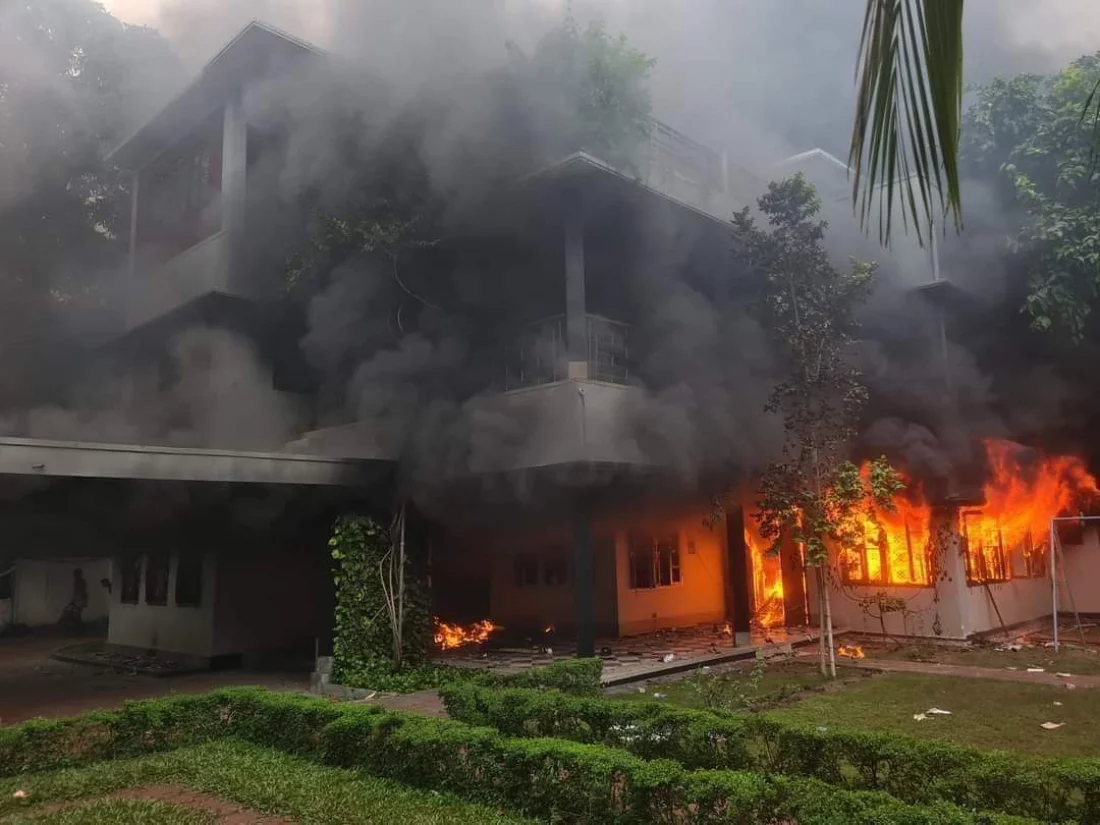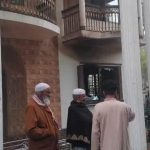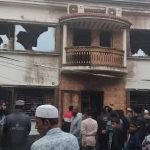While the exact causes of these violent acts remain unclear, they are believed to be tied to the broader political instability that often accompanies regime changes. In this post, we explore how the hypothetical fall of Sheikh Hasina could lead to such incidents of arson, the potential consequences for the country, and what steps might be taken to ensure that Bangladesh moves toward greater stability, peace, and unity in the wake of political turmoil.
The Hypothetical Fall of Sheikh Hasina: A Pivotal Moment in Bangladesh's Political Landscape
Sheikh Hasina has been a dominant figure in Bangladeshi politics for over a decade, leading the country with a firm grip on power. Her tenure has been marked by both economic growth and political controversy, and her leadership has been characterized by a strong commitment to modernization, infrastructure development, and poverty reduction.
If, hypothetically, Hasina were to be ousted—whether through popular protests, a military intervention, or a political coup—Bangladesh would find itself at a crossroads. The power vacuum left by her departure could create immense uncertainty, triggering political realignments, factionalism, and potentially violent protests. In this charged environment, some groups might resort to extreme tactics, including arson, as a means of expressing discontent or asserting political dominance.
Reports of Arson and Property Destruction
As the political situation becomes increasingly volatile in the wake of Hasina’s hypothetical ouster, reports are emerging of miscreants setting fires to properties in various parts of the country. These incidents often coincide with protests, strikes, or riots, where demonstrators clash with law enforcement, and property destruction serves as an outlet for anger and frustration.
The targets of these arson attacks can vary widely:
- Government Buildings: In many cases, government offices, police stations, and other state institutions may be targeted, as they are seen as symbols of the ruling regime’s power.
- Business Establishments: Small businesses and commercial properties, especially those associated with political allies of the former regime, can be destroyed as a way of sending a message or attempting to weaken the economic base of the new government.
- Private Residences: In extreme cases, private homes of politicians, political supporters, or perceived opponents might also be set ablaze as part of larger campaigns of intimidation.
While these acts are usually perpetrated by a small group of individuals, the resulting chaos can have profound consequences, deepening divisions and heightening fears among the general population.
The Consequences of Arson: Beyond the Flames
The immediate physical destruction caused by arson is only one aspect of its impact. The broader consequences of such acts can reverberate across the country:
- Economic Destruction: The loss of property, businesses, and infrastructure has significant financial consequences. Small and medium-sized businesses may struggle to recover, leading to job losses and economic instability. The cost of rebuilding is often borne by the state, further straining an already fragile economy.
- Social Instability: Arson attacks increase social instability by fueling fear and mistrust between various segments of society. When people feel unsafe in their homes or workplaces, it erodes social cohesion and exacerbates the political divide. Those targeted by arson, whether they are ordinary citizens or political figures, can feel marginalized and vulnerable.
- Polarization: In a deeply divided political climate, acts of violence, including arson, can further polarize society. Each side of the political spectrum may use these incidents to blame the other, leading to a breakdown in dialogue and increased hostility. The notion of "us versus them" can become even more entrenched, making reconciliation and peaceful resolution even more difficult.
- Loss of Trust in Law Enforcement: As violence escalates, public confidence in the ability of law enforcement to maintain order and protect citizens can wane. If law enforcement is seen as being too lenient or corrupt, or if security forces themselves become entangled in political conflicts, it can lead to further violence and instability.
A Nation in Crisis
The potential for violence, including arson, in Bangladesh following the ouster of Sheikh Hasina is a serious concern, and it underscores the fragile nature of the country's political landscape. As Bangladesh faces this challenging moment, it is essential for all stakeholders—politicians, civil society, and citizens alike—to come together in the spirit of peace, unity, and reconciliation. Only through cooperation and dialogue can the nation emerge stronger from this crisis, ensuring that the flames of violence are replaced by the light of hope for a peaceful, prosperous future.
On December 7, 2024, former chairman of the Mustafapur Union Parishad in the Moulvibazar Sadar Upazila and vice-president of the district Jubo League, Sheikh Rumel Ahmed's house was set on fire using petrol. Inside the house, his sleeping mother, Mehrunnesa (65), and aunt, Fulesha Begum (60), were killed.




